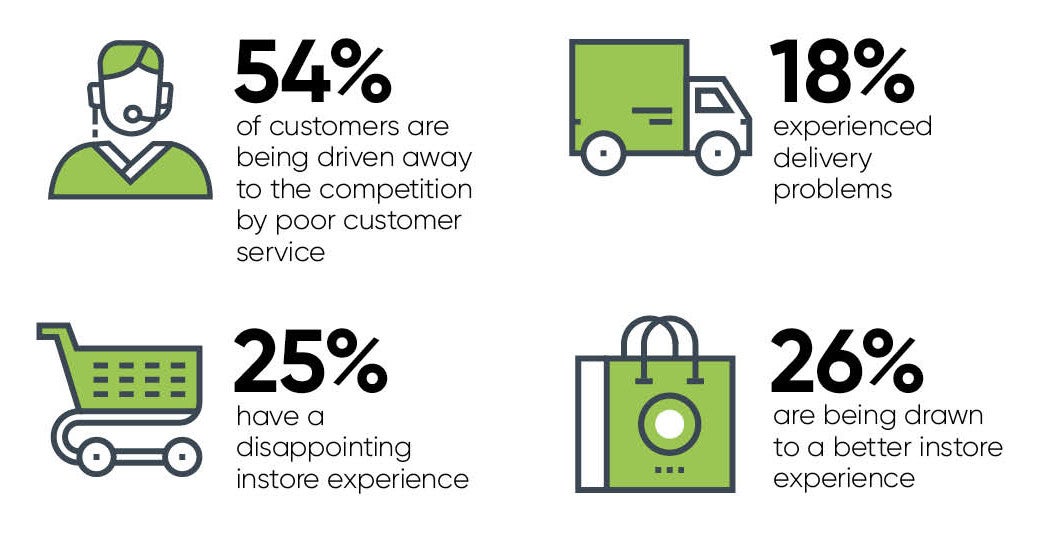As technology enables customers to shop and interact with organisations quicker, wherever and whenever they want, it might be assumed that customer satisfaction is on the increase.
However, a new survey reveals that a fifth of customers believe that the service they receive is actually getting worse. The research commissioned by Engage Hub, the leading provider of data-driven customer engagement solutions, and carried out by specialist research agency Morar, also shows that just over half of those asked (54 per cent) are being driven away to the competition by poor customer service.
The same is true of disappointing in-store experience (25 per cent) and delivery problems (18 per cent). Meanwhile, more than a quarter of customers (26 per cent) are being drawn to retailers that offer a better in-store experience and more flexible delivery options.
So what’s going wrong? “Unlike other sectors, retailers have historically focused primarily on acquisition tactics, using the most cost-effective channels such as email to bombard customers with non-specific promotions,” explains Jeremy Deaner, chief commercial officer of Engage Hub. “However, pure-play ecommerce brands have been gaining market share by undercutting on price while traditional retailers have been slow to react to this change and have continued to send acquisition communications that remain irrelevant.”
Retail customers of Engage Hub have seen their revenues and retention rates increase because they’ve used the customer data they already have to trigger personalised and relevant communications across all channels. “It’s time retailers prioritised retention strategies which directly impact the bottom line, instead of simply focusing on acquisition,” says Mr Deaner.
The survey shows, for instance, that more than a third (38 per cent) of mobile network operator customers believe customer service can be improved by providing them with offers they can actually use.

For retailers, the key is to offer better in-store experiences. “Getting people through the door is just the first step. What gets shoppers coming back and increases foot traffic in the long term is providing exceptional services and experience to customers once they’re inside. Topshop, for instance, are now adding hairdressers into some of their stores.”
Meanwhile, nearly two thirds (65 per cent) of consumers of financial service providers recognise customer service as important, according to the survey. The firms that are retaining valuable customers and consequently increasing revenues are the ones leveraging data from every touchpoint along the customer journey, to serve relevant information about products and services, while preventing fraud more effectively.
Research shows that they also need to deliver on mobile more effectively and bridge the gap between online and in-branch. “To engage and retain customers, banks must utilise new technologies that integrate disparate activity across digital and physical channels, delivering a seamless and tailored customer experience,” says Mr Deaner.
The success of many disruptors derives from their customer-centred design. They look for markets in which customers are being underserviced, or where there are value gaps for customers, and then they provide solutions. Airbnb, for instance, uses customer and supplier feedback to enable both to drive better experiences from each other. Uber applies the same tactic to passengers.
As Mr Deaner points out, many businesses are currently too slow in adopting technology, putting them at risk of losing market share to more agile new market entrants.
“Business leaders need to rethink their working practices to deliver a true cross-channel customer experience. They can then disrupt their own products and processes by becoming customer driven rather than customer led,” he says. “Senior executives concerned about actual or potential disruptions need to act now and start using customer-driven techniques to change, before their competitors beat them too it.”
For more information please visit www.engagehub.com

